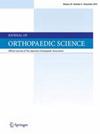PNI有助于预测软组织肉瘤患者的预后:一项回顾性研究。
IF 1.5
4区 医学
Q3 ORTHOPEDICS
引用次数: 0
摘要
背景众所周知,术前预后营养指数(PNI)有助于预测胃肠道疾病的预后,术前改善营养状况可改善预后。然而,很少有大规模的报告研究 PNI 在软组织肉瘤中的预后价值。因此,本研究旨在探讨 PNI 是否有助于预测软组织肉瘤的总生存率。方法2006 年 1 月至 2022 年 3 月期间,我院回顾性纳入了 111 例病理诊断为软组织肉瘤的患者。根据治疗前的血样结果计算出几种营养或炎症生物标志物,如 PNI。根据各参数的中位值将患者分为两组(低组和高组)。总生存率采用卡普兰-梅耶法和对数秩检验进行分析。结果中位总生存期为 24.3 个月(平均 37.3 个月),高 PNI 组的总生存期明显长于低 PNI 组(P < 0.0001)。在其他营养和炎症参数中,PNI 是影响总生存期最重要的单变量因素(HR:5.64,95% CI:2.26-14.12,P = 0.0002)。多变量比例危险度模型是根据先前有关患者特征和 PNI 的分析所提出的具有预后潜力的变量建立的。作为潜在的混杂因素,我们纳入了 PNI、分期、年龄和肿瘤位置。在多变量分析中,PNI 也是一个独立的预后因素(HR:7.02,CI:2.52-19.40,P = 0.0002)。本文章由计算机程序翻译,如有差异,请以英文原文为准。
PNI is useful for predicting the prognosis of patients with soft tissue sarcoma: A retrospective study.
BACKGROUND
It is known that preoperative Prognostic Nutritional Index (PNI) is useful in predicting prognosis in gastrointestinal diseases and that preoperative improvement of nutritional status improves prognosis. However, there have been few large-scale reports examining the prognostic value of PNI in soft tissue sarcomas. Therefore, the aim of this study is to investigate whether the PNI can be useful for predicting overall survival in soft tissue sarcoma.
METHODS
Between January 2006 and March 2022 at our hospital, 111 patients with pathologically diagnosed soft tissue sarcoma were included, retrospectively. Several nutritional or inflammatory biomarkers such as PNI were calculated from the pretreatment blood sample results. The patients were classified into two groups (low and high groups) based on the median value of each parameter. Overall survival was analyzed by the Kaplan‒Meier method and log-rank test. Univariate and multivariate analyses using the Cox proportional hazards model were used to investigate prognostic factors for overall survival.
RESULTS
The median overall survival was 24.3 months (mean 37.3 months), and the high PNI group had a significantly longer overall survival than the low PNI group (p < 0.0001). PNI was the most significant univariate factor for overall survival among other nutritional and inflammatory parameters (HR: 5.64, 95% CI: 2.26-14.12, p = 0.0002). The multivariate proportional hazards model was built using variables with prognostic potential as suggested by previous analysis with respect to patient characteristics and PNI. As potential confounding factors, we included PNI, stage, age, and tumor location. PNI was also an independent prognostic factor in multivariate analysis (HR: 7.02, CI: 2.52-19.40, p = 0.0002).
CONCLUSION
PNI is a useful prognostic factor among various parameters for overall survival in patients with soft tissue sarcoma.
求助全文
通过发布文献求助,成功后即可免费获取论文全文。
去求助
来源期刊

Journal of Orthopaedic Science
医学-整形外科
CiteScore
3.00
自引率
0.00%
发文量
290
审稿时长
90 days
期刊介绍:
The Journal of Orthopaedic Science is the official peer-reviewed journal of the Japanese Orthopaedic Association. The journal publishes the latest researches and topical debates in all fields of clinical and experimental orthopaedics, including musculoskeletal medicine, sports medicine, locomotive syndrome, trauma, paediatrics, oncology and biomaterials, as well as basic researches.
 求助内容:
求助内容: 应助结果提醒方式:
应助结果提醒方式:


